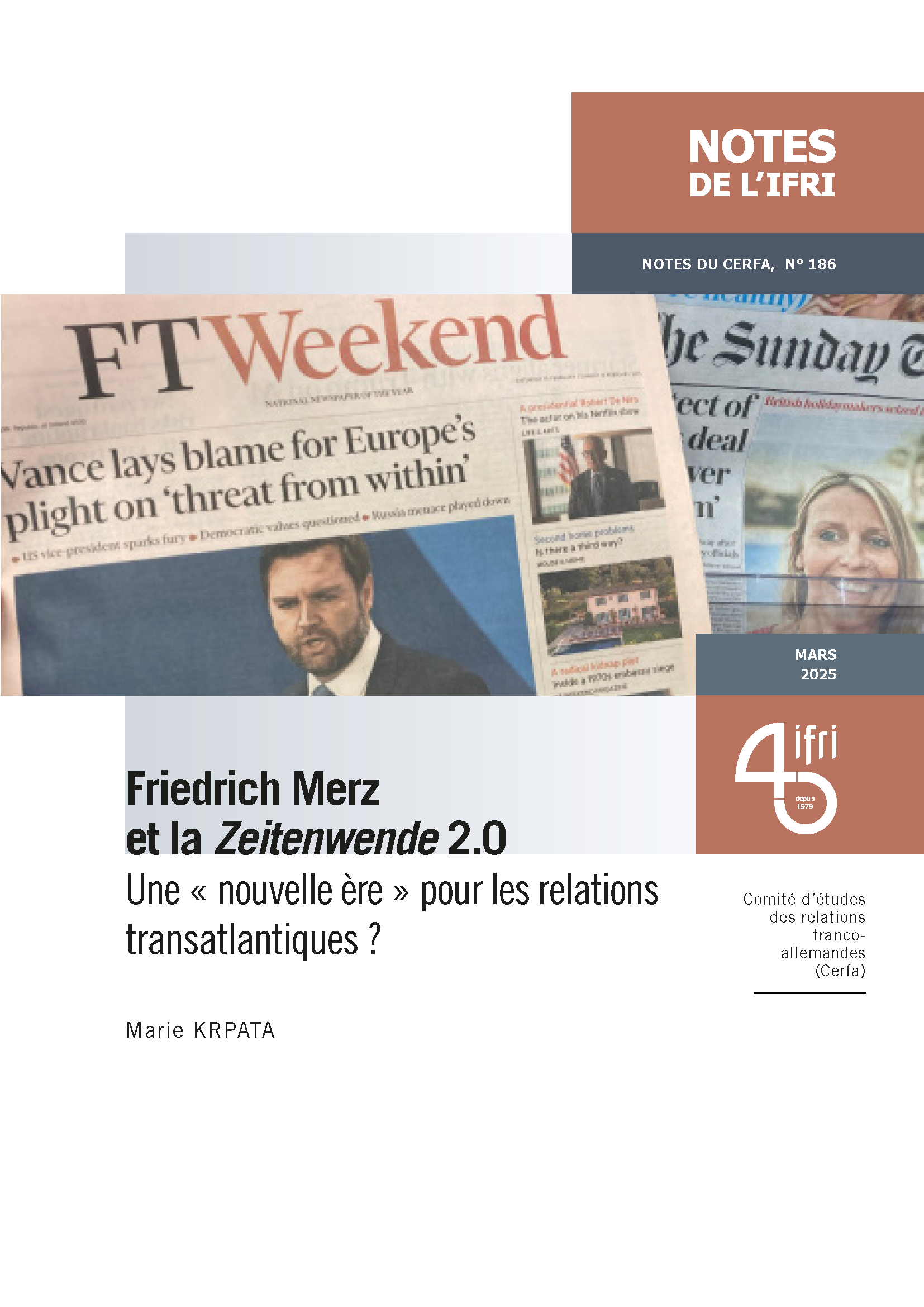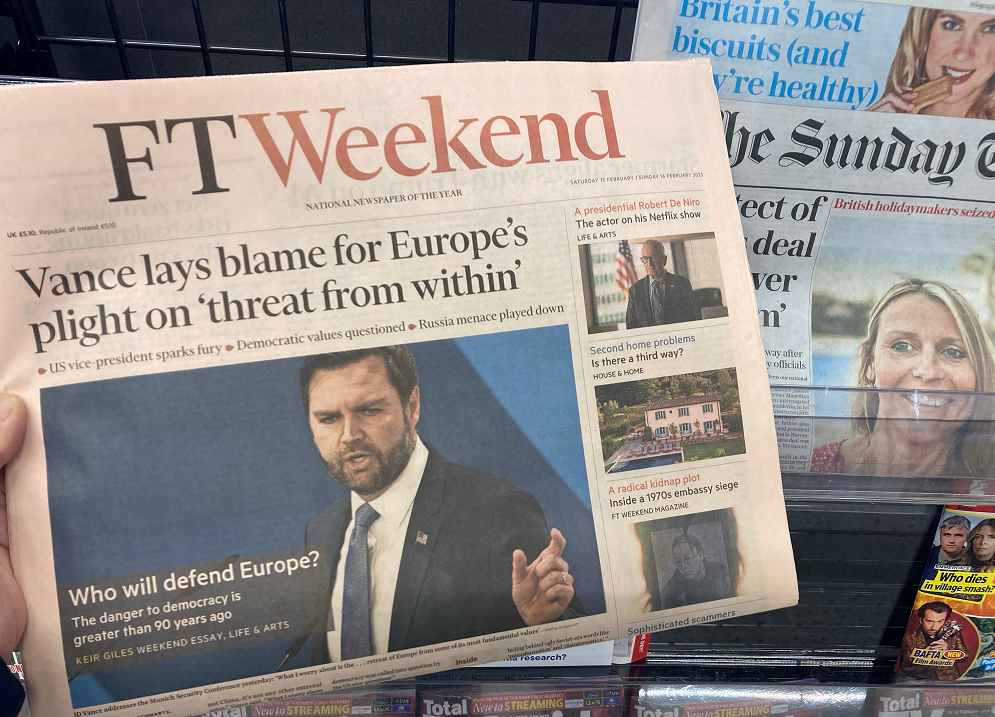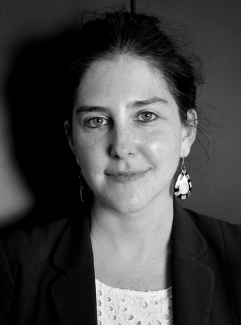Friedrich Merz and the Zeitenwende 2.0. A “New Era” for Transatlantic Relations?

On February 23, 2025, almost 60 million voters were called upon to elect a new Bundestag. These elections will also give rise to a new government in Europe's largest economy.

With the next coalition in place around a likely future Chancellor Friedrich Merz, Germany hopes to regain stability. There is also the question of what role Germany will play within the European Union, and what direction it wishes to take towards the United States following Donald Trump's return to the White House.
At a time when the coming years will be decisive for the affirmation of Europe's role in the world order and for its security, will the future German government seek to portray itself as resolutely pro-European, or will it be anxious to defend its own interests? What new Franco-German dynamic could emerge?
Marie Krpata is Research Fellow at the Study Committee on Franco-German Relations (Cerfa) at the French Institute of International Relations – Ifri, where she dedicates her research activities to the European Union and the external relations of the Franco-German couple.
This publication is available:
- French: Friedrich Merz et la Zeitenwende 2.0. Une « nouvelle ère » pour les relations transatlantiques ?.
- German: Friedrich Merz und die „Zeitenwende 2.0“: Eine „neue Ära“ für die transatlantischen Beziehungen?.

Available in:
Themes and regions
ISBN / ISSN
Share
Download the full analysis
This page contains only a summary of our work. If you would like to have access to all the information from our research on the subject, you can download the full version in PDF format.
Friedrich Merz and the Zeitenwende 2.0. A “New Era” for Transatlantic Relations?
Related centers and programs
Discover our other research centers and programsFind out more
Discover all our analysesBundeswehr: From Zeitenwende (historic turning point) to Epochenbruch (epochal shift)
The Zeitenwende (historic turning point) announced by Olaf Scholz on February 27, 2022, is shifting into high gear. Financially supported by the March 2025 reform of Germany’s “debt break” and backed by a broad political and societal consensus to strengthen and modernize the Bundeswehr, Germany's military capabilities are set to rapidly increase over the coming years. Expected to assume a central role in the defense of the European continent in the context of changing transatlantic relations, Berlin’s military-political position on the continent is being radically transformed.
Merz’ European Policy-making: The End of the ‘German Vote’?
Friedrich Merz’s European ambition is to turn Germany, long seen as hesitant into a leading actor within the European Union (EU). To that end, he has pledged to end the “German vote,” a phenomenon that epitomizes the paradox of a country both indispensable and frequently absent from European decision-making.

Securing critical raw material (CRM) value chains – a prerequisite for Europe’s technological resilience
At the heart of economic security, technological resilience is a backbone of the European Union’s (EU) competitiveness. The EU’s energy and digital transitions depend on critical raw materials (CRM).

Reconciling competitiveness and demographic change: a Franco-German imperative
France and Germany are facing parallel demographic shifts that could reshape the future of their economies and their social models. These shifts reflect broader European patterns but are magnified by the central role both nations play in EU governance and competitiveness.










